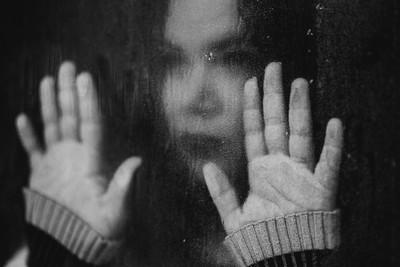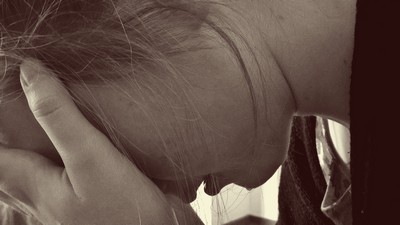No Ads, No Pop-ups – Just Information and Opportunities!
Abusive Relationship Advice
Are you in an Abusive or Controlling Relationship?
This Abusive Relationship page is part of my Relationships series...
Identifying whether you are in an abusive or controlling relationship can sometimes be difficult. The black eye and bruises are obvious physical signs of an abusive relationship. But you don’t have to be beaten black and blue to suffer this kind of abusive.
There are warning signals to
identify whether you are suffering verbal, emotional, or physical abuse
in a relationship and why it can be difficult to break free. The actions of your partner designed to control where you go, who you see and your access to friends, family and money highlight controlling behaviour that constitutes abuse.
Questions to Ask Yourself

- Are you afraid of your partner?
- Do you feel as if you have to walk on eggshells to keep your partner from getting angry?
- Does your partner emotionally abuse you by using insults, belittling you or ignoring you?
- Does your partner tell you who you may be friends with, how you should dress, or try to control other elements of your life or relationship?
- Does your partner get jealous when there is no reason?
- Does your partner ever get physically violent to you or others, even if it's 'just' pushing, jabbing a finger or grabbing to get their way?
- Does your partner have extreme mood swings from being affectionate one minute to mean and cruel the next?
- Have you changed your life, your habits, your routine, and your relationships with family and friends so as not to 'provoke' your partner?
- Does your partner make all the financial decisions without consulting you?
- Are you unable to freely express your views and opinions?
If you've said 'yes' to any of the above questions you are in an abusive relationship.
Because women make up the majority of the abused partner in abusive relationships I have worded the following advice from a woman’s perspective.
It is a fact that most abuse happens to women, perpetrated by men. Although there are also female abusers of men and also same sex abusers.
An abusive relationship will always have a negative impact on children.
Things Abusers Say
There are common phrases and statements that abusers use to put down, belittle, control and manipulate their partners.
Here are some examples:
You're stupid. You're fat. You're ugly. You're useless. You're frigid.
You can't even keep the house tidy. You're a terrible mother. You’re a hopeless cook.
You're lucky to have me. No one else would want you.
If you tell anyone else about the abuse... you'll be sorry.
If you tell anyone else about the abuse... no one will believe you.
If you tell anyone else about the abuse... I'll report you as an unfit mother.
If you try and leave me... you'll never get away.
If you try and leave me... you couldn't cope without me.
If you try and leave me... no-one else will have you.
If you try and leave me... I'll snatch the kids and you'll never see them again.
If you try and leave me... I'll track you down and find you even if it takes years and then I'll kill you so you'll never be able to live in peace never knowing when it will happen.
If you try and leave me... I'll kill myself and you'll have to explain to our children why their dad is dead and it'll be on your conscience for the rest of your life.

Staying in an Abusive Relationship
Although each relationship is different there are common factors why people stay in an abusive relationship:
They believe they can change their partner. (This will NEVER happen).
They hope that they can get back to how it was before the abuse started at the beginning of the relationship.
They feel that they can’t cope, manage or live without the other person.
They are afraid of confrontation and the repercussions.
They stay ‘for the sake of the children’.
They don’t feel that they can support themselves – financially, emotionality or practically.
They don’t have the support to help them leave the abusive relationship, and feel alone and isolated.
They feel ashamed and guilty that they are a failure in a failed relationship.
This list compiled by Davina James-Hanman and published on the BBC website can help you to recognise if you, or someone you know, are in an abusive relationship.
- Destructive criticism and verbal abuse: shouting, mocking, accusing, name calling, verbally threatening.
- Pressure tactics: sulking, threatening to withhold money, disconnect the telephone, take the car away, commit suicide, take the children away, report you to welfare agencies unless you comply with his demands regarding bringing up the children, lying to your friends and family about you, telling you that you have no choice in any decisions.
- Disrespect: persistently putting you down in front of other people, not listening or responding when you talk, interrupting your telephone calls, taking money from your purse without asking, refusing to help with childcare or housework.
- Breaking trust: lying to you, withholding information from you, being jealous, having other relationships, breaking promises and shared agreements.
- Isolation: monitoring or blocking your telephone calls, telling you where you can and cannot go, preventing you from seeing friends and relatives.
- Harassment: following you, checking up on you, opening your mail, repeatedly dialling 1471 to see who has telephoned you, embarrassing you in public.
- Threats: making angry gestures, using physical size to intimidate, shouting you down, destroying your possessions, breaking things, punching walls, wielding a knife or a gun.
- Sexual violence: using force, threats or intimidation to make you perform sexual acts; having sex with you when you don't want to have sex; any degrading treatment based on your sexual orientation.
- Physical violence: punching, slapping, hitting, biting, pinching, kicking, pulling hair out, pushing, shoving, burning, strangling, raping.
- Denial: saying the abuse doesn't happen, saying you caused the abusive behaviour, being publicly gentle and patient, crying and begging for forgiveness, saying it will never happen again.
Alizon's Advice
Get out of an abusive relationship now!
Your abuser will never change for the better – they will get worse.
There is no point ‘working at it’ or accepting it as the inevitable ‘ups and downs’ or ‘give and take’ of any relationship.
Get out now! And take your children before things get worse.
Your abuser does not love you. Love doesn’t hurt, make you cry or behave badly.
You and your children deserve so much better.
Seek practical help to get out of your relationship.
Please heed my advice before any harm comes to you and your children.
I speak from bitter personal experience and know that you’ll live to regret staying with an abusive partner.
Positive energy is very important if you are to live an abundant and prosperous life and build up good karma. A great way to do this is by undertaking some charity work.
REVIEWS
SPELLS
111 Ritual
222 Ritual
Attraction Spells
Love Spells
Money Spells
All Spells
Full Moon Spells
New Moon Spells
Sex Spells
Reunite Spells
Weight Loss Spells
Protection Spells
Commitment Spell
Complex Love
Soul Mate Spells
Success Spells
Fame & Fortune
Custom Spells
Ultimate Spell
The Ultimate Sacred Balance Spell
Connect with Me
The law requires me to state that the contents of this website are for entertainment purposes only.
Psychic, tarot and spell casting services cannot be a substitute for professional, legal, medical, financial or psychiatric advice/care, where appropriate.
You must be at least 18 years old to make any purchase from me.
© Copyright All Original Content 2006 – 2024 Alizons-psychic-secrets.com. All Rights Reserved.
Reproduction in whole or in part without permission is not permitted.




